Businesses nowadays have to be present online if they wish to maximize their profit. If you do a little research, you’ll find that local SEO is among the top practices to generate leads online and convert them into customers.
Apart from being a top practice for driving more in-store traffic, local SEO is also extremely difficult. Have you ever wondered how the Google local algorithm works? Or what you can do to improve your local rank and appear in the local pack?
The competition is getting harder every day and Google is updating the algorithm consistently to ensure that the best match for searcher’s query shows up at the top of the search result pages.
Here, we’ll break down the core factors that go into the Google local algorithm, relevance, prominence and proximity. Taking care of these three factors will equip you with characteristics with which you can conquer the Google local algorithm and rank higher.
So, let’s break down the Google local algorithm and get right into it.
Relevance
Google’s local algorithm vouches highly on relevance. You want to make sure that you are targeting the right keywords and topics in order to ensure that Google and other search engines see your business as relevant to be appearing in relevant searches.
For example, if you own an ice cream shop in Las Vegas, you want to make sure that Google relates your business with keywords like ‘ice cream Las Vegas.’
In the next section, we’ll talk about how you can let the Google local algorithm know that your business is relevant to certain queries.
Business Listing Signals
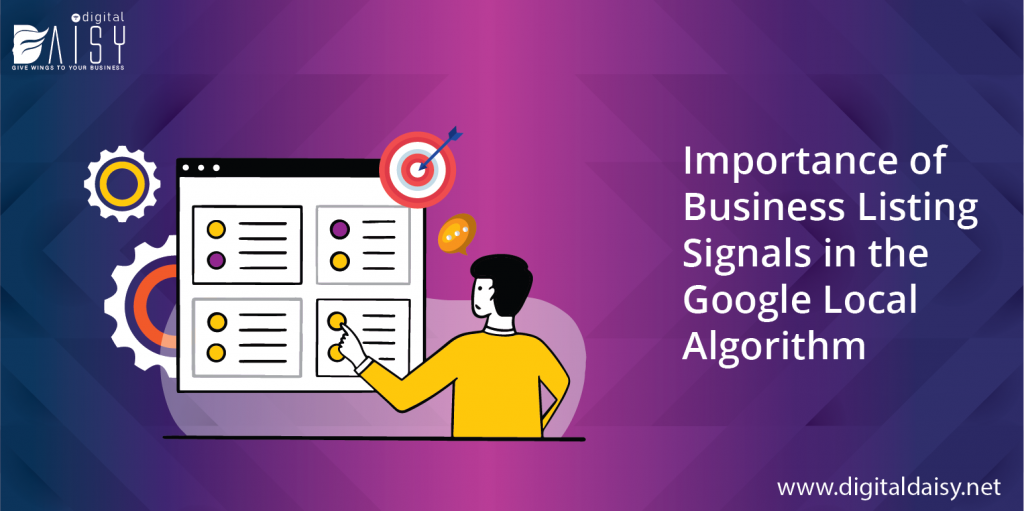
Business listings such as Google My Business, Bing Places, Yahoo Local listing, etc., require regular optimization.
Your business’s NAP – name, address and phone number should be accurate throughout the channels. Make sure that you have only one claimed listing on the respective platform. Apart from that, here are two other things that you should look out for:
1. Business Category
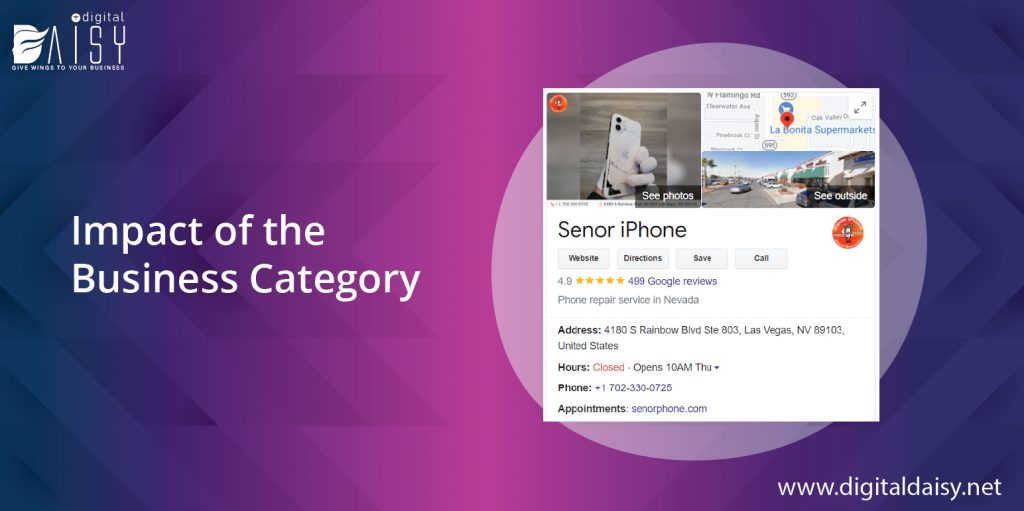
Your local listing’s business category sends signals to search engines to tell them what your business is about. By specifying a business category, you are attaching relevant tags to your business with which the search engine signals associate.
So, the more specific you are with your business category, the better search engines will understand it. Check out our article on GMB categories to read more about business categories.
2. Business Description
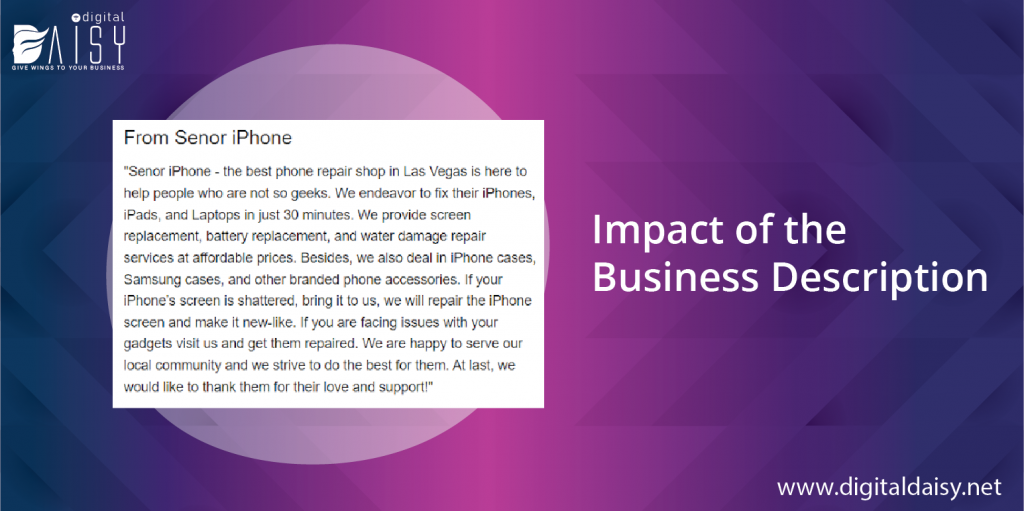
Business description of your local listing is your business’s introduction. It gives your customers as well as search engines a brief about what your business is actually about. One thing that you should keep in mind is that you don’t want to be salesy here. Try and keep the description informative.
Prominence
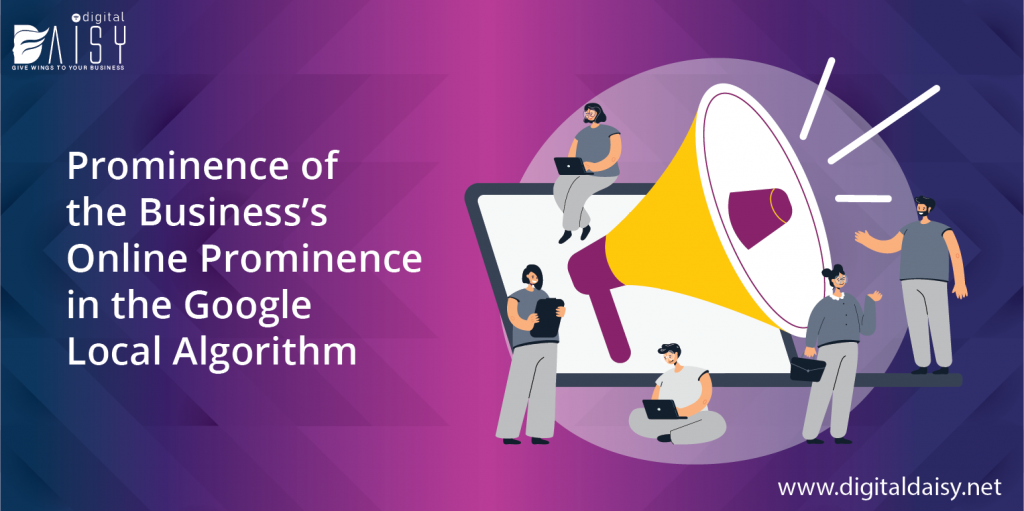
Google and other search engines attain their data from all around the web. That is why it is extremely important to keep in mind that your brand should have a solid online prominence. This comes in several different forms such as directories, reviews, articles, etc. That way, your business builds trust and credibility in Google’s eye.
Reviews
Reviews, as you already know, not only increase the ranking signals but can also influence the decision making of the users to a great deal.
Let’s ask ourselves, who’d we choose if we had to choose between a business who has 100 positive reviews vs the one who has 10? The former seems to be an obvious choice. You should earn the trust of consumers before they actually buy what you provide.
The Google local algorithm requires similar trust for ranking your business. Here’s a couple of pointers to help you utilize reviews for stronger signals.
1. Construct a Strategy
The first step is to have a great online prominence. Make sure that the products/services that you provide are the best in standard.
Come up with a strategy where you follow up on your clients and encourage them to give their valuable reviews for what they bought from you. You can also use tools to generate reviews from your clients.
2. Interact with Customers
Managing and monitoring your business’s reviews are as important as getting them. Google looks up to businesses who interact with their business’s reviews and feedback. So, make sure to respond to as many, or all of the reviews if possible.
Addressing the negative reviews is extremely important. Negative reviews aren’t great, obviously. But you can respond to them positively and address the reviewer’s disappointment.
The Google local algorithm keeps an eye on the consumers’ feedback to favor the rankings. So, make sure that you stand out from your competitors and build a positive brand.
Citations
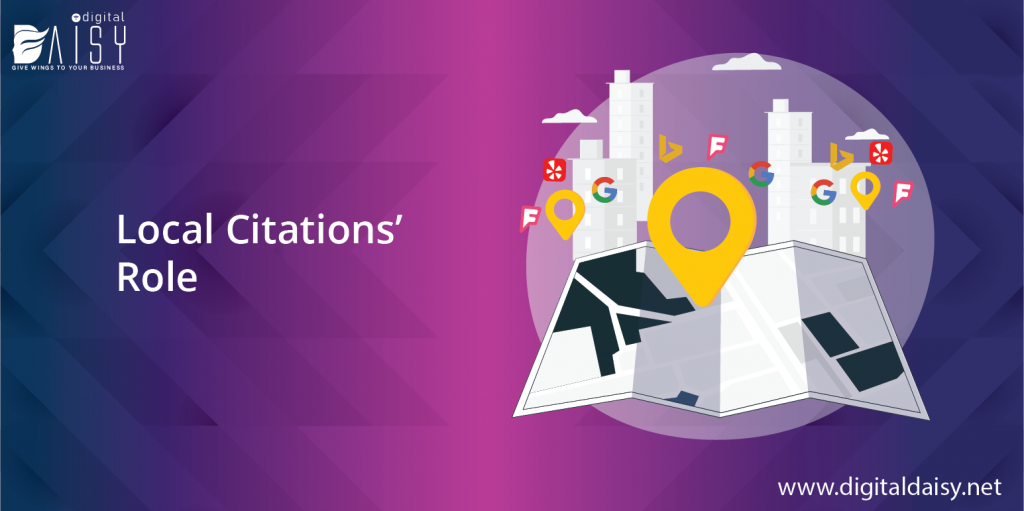
A citation is mention of your business’s information on the web, the most important being the name, address and phone number, more commonly known as NAP. You don’t require to add a link to these citations, just a mention of them will count as a citation.
Google sees a good number of consistent and accurate citations on the web as a positive signal that checks the boxes in the Google local algorithm. So, make sure that you have as many high authority and consistent citations as possible.
Backlinking
The best way to find out why your competitor is outranking you is to check out how many backlinks they have. You can never have enough good quality backlinks to your pages. Good quality backlinks add a lot to your website’s online reputation, and eventually favor the Google local algorithm.
Proximity
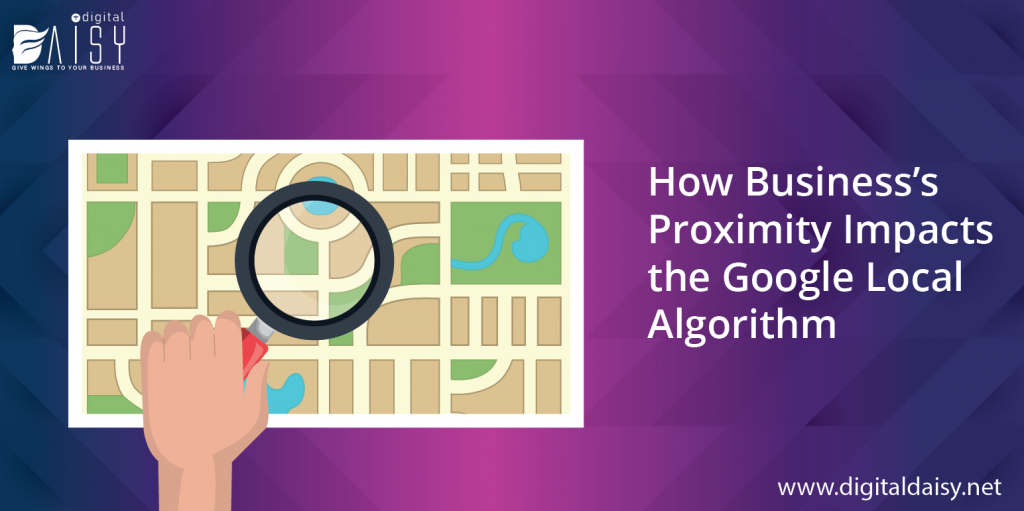
Last but not the least, proximity is one of the most important ranking factors in the Google local algorithm. Google is constantly updating its algorithms to make sure that the users get the most relevant results for their search queries.
If you’re not new to local SEO, you may have heard proximity being regarded as the #1 ranking factor. That’s still very accurate.
Users can perform three types of local searches, geo-modified, non-geo-modified and near me searches. Let’s have a look at the differences between them:
Geo-Modified Queries
It’s called a geo-modified query when you perform a location specific search. For example, you live in New York and are planning a trip to Los Angeles, and looking for places to eat in LA. Your query would be “restaurants in Los Angeles.” Those results would be different from the results you’d see if you were in LA and searched just “restaurants.”
Meaning, that geo-modified searches rely more on relevance and prominence than proximity if you’re not in the same location as the search query.
Non-Geo Modified Searches
Users nowadays have understood that they don’t have to specify a location in search queries for a local search. They can simply search for something and the local results will be shown according to their proximity. Although, it doesn’t mean that prominence and relevance won’t have any part in it.
"Near Me" Searches
Even though “near me” searches aren’t as prevalent as they used to be, there are many users that perform a “near me” search when looking for something locally.
I say “near me” isn’t as prevalent as it used to be because “near me” is already implied when you perform a local search.
Wrapping Up
Throughout this article, we saw how the Google local algorithm is supported by three core pillars; proximity, relevance and prominence.
Let’s go over these three pillars one last time:
- Proximity: Google local algorithm looks out whether the results are within a reasonable radius or not.
- Relevance: Whether your business or products are relevant to the search query or not.
- Prominence: How well your business is recognized online.
These three are the basic and most important things to take care of if you want to be favored by the Google local algorithm.
Although, there are many factors that might need to be taken care of to get the best rank in local results. So, if you’re not 100% sure even after reading this article how you can achieve that, it’s always the best idea to get an expert’s advice.
Digital Daisy is a local SEO agency that has a great knowledge of the Google local algorithm and masters in local SEO. We can improve your local rank with expertise.
Feel free to get in touch with us by clicking here.
Jaykishan Motwani
Mehul is a content writer with the heart of a nomad. He is currently working with Digital Daisy and he is passionate about Quantum Physics, Tarantino’s dialogues, and Delhi’s street food. His weekends are well spent with his Golden Retriever recharging him with cuddles and walks.



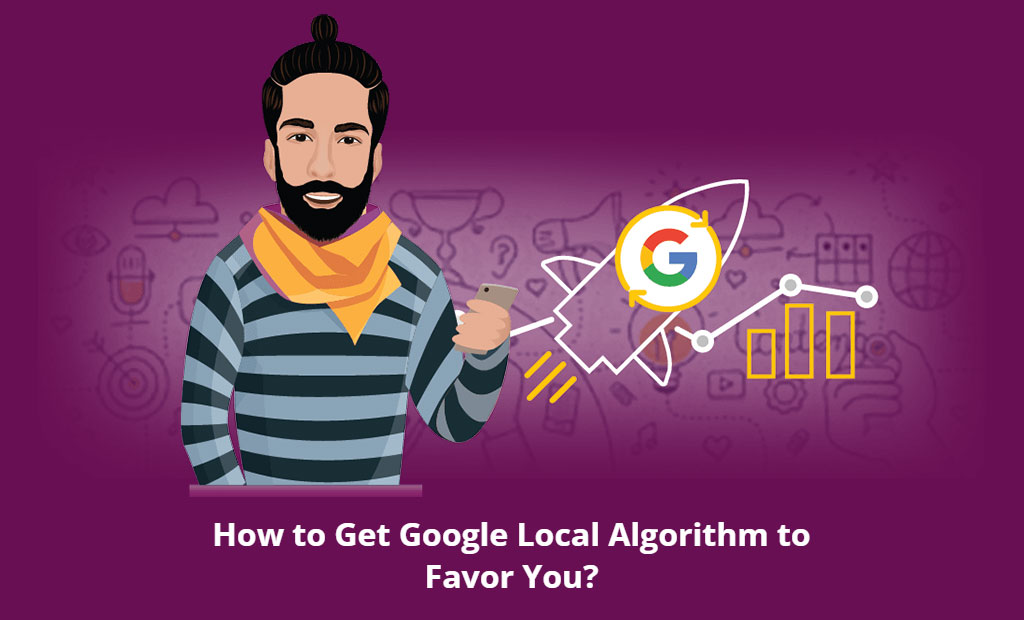

 Yes I'm In...
Yes I'm In...